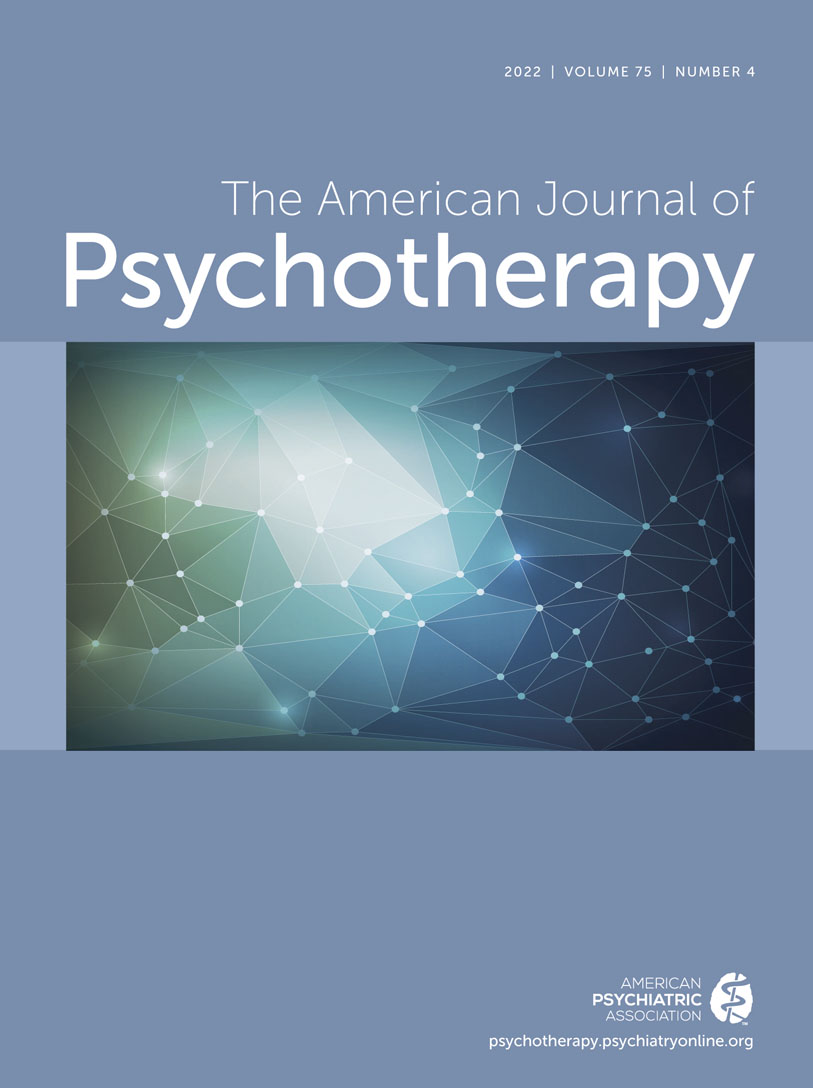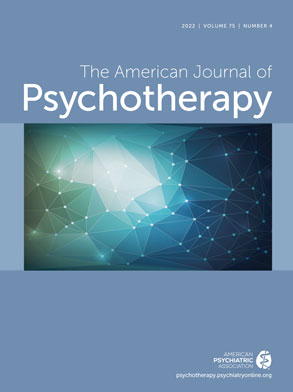From its founding in 1949, the National Institute of Mental Health (NIMH) established itself as an international leader in psychiatric clinical research funding. With an explicit mission to alleviate the suffering of those with mental illness, NIMH invested in many formative clinical studies, including large randomized controlled trials (RCTs) to test the efficacy of manualized psychotherapies for specific populations and disorders. Seminal NIMH-supported trials examined the efficacy of psychotherapies as treatments for major depressive disorder among adults (
1), adolescents (
2,
3), and in late life (
4) and also as maintenance strategies to prevent new episodes (
5,
6). Randomized controlled trials of psychotherapies for bipolar disorder (
7,
8), eating disorders (
9), posttraumatic stress disorder (PTSD) (
10), attention-deficit hyperactivity disorder (ADHD) (
11), and anxiety disorders (
12,
13) also received robust support. Many studies were large or conducted at multiple sites, providing sufficiently large patient samples to answer nuanced questions about outcomes (
1,
7,
9,
11,
14). Results from these NIMH-funded studies inform many major practice guidelines (
15–
18), shaping the way practitioners deliver care across the globe today. They also influenced large public health initiatives that determine access to and reimbursement for mental health services, such as the Improving Access to Psychological Therapies (IAPT) program in the United Kingdom (
19), which advanced the delivery of cognitive-behavioral therapy and interpersonal psychotherapy in the National Health Service with evidence collected in NIMH-funded trials. Thus, NIMH’s activities have long been aligned with its public health mission of furthering the treatment of psychiatric illnesses (
20).
In 2002, Thomas Insel, M.D., was appointed as director of NIMH, and everything changed. During his long tenure at NIMH (2002–2015), Dr. Insel engineered a shift in the institute’s priorities—from clinical research, including psychotherapy trials, to basic science. These priorities persist today despite new leadership. Approximately 90% of NIMH’s budget has been reallocated to neuroscience (
20), and clinical trials have been relegated to a very small number of funding opportunities, all of which require an “experimental therapeutics” approach. These narrowly defined clinical trials require investigators to demonstrate “target engagement” (i.e., a mediator) that “ideally [is] linked to some mechanism of disease” (
21).
Demonstration of target engagement is a feasible paradigm for interventions that employ small molecules with specific neurotransmitter ligands or biologics that bind to immunologically active proteins. The quest to make psychiatry more like oncology ignores fundamental differences in the two fields, including the absence of readily targetable etiologic mechanisms for most psychiatric disorders and years of research showing that virtually all mental disorders arise from multiple factors, including interpersonal, biological, psychosocial, and environmental determinants (
22–
24). The target engagement framework is especially problematic for psychotherapies, which, when working well, address both disorder-specific symptoms (perhaps generated to some extent by specific engageable biologic or psychologically operationalizable targets) and more integrative human processes such as communication, relationships, attachment, and sense of identity. Researchers attempting to specify targets in these starkly constrained protocols have been pressed toward reductionist approaches, such as computer programs that are designed for users to associate self-perception with positive ideas or emotions (
25).
NIMH’s shift toward defining psychopathology by using exploratory Research Domain Criteria in lieu of widely accepted diagnostic criteria further distances NIMH-generated research findings from clinical relevance (
26,
27). It is unclear what Research Domain Criteria constructs such as “reward anticipation” or “frustrative nonreward” mean to individuals seeking psychotherapy for major depressive disorder, relational difficulties, or PTSD. Even in the way they are framed, targets are unlikely to carry face-value meaning to patients.
Sadly, this approach limits treatment discovery to the rare instances in which investigators have defined a plausible neural target that will mediate psychotherapy outcomes. It leaves the field without needed information on pressing psychotherapy questions, including effects of common versus specific factors in psychotherapy processes and outcomes (
28–
30), how treatments work differently for various patient subgroups, how best to sequence interventions to address treatment nonresponse, and optimal strategies for adapting treatments to the needs of specific cultural groups or people with a specific disorder. We are no longer learning about differential effects of psychotherapies, the relative merits of combined versus monotherapy treatments, or the appropriate dosage and duration of commonly prescribed psychotherapies. Most important, this prescriptive approach to research stifles innovation and discovery.
The shift in NIMH priorities has effectively eliminated funding for psychotherapy RCTs in the United States, slowing the flow of patient-relevant knowledge generation to a trickle (
26). Unlike pharmacologic RCTs, which continue unabated because of support from pharmaceutical companies (a sometimes Faustian bargain), no such alternative funding streams exist to develop and test new psychotherapies. Another U.S. funding agency, the Patient-Centered Outcomes Research Institute (PCORI), supports studies that answer questions about comparative effectiveness, but PCORI is not focused exclusively on mental health. Although neuroscience is unquestionably important, NIMH’s single-minded emphasis on neuroscience has drastically reduced treatment research that directly informs patient care. Allen Frances, M.D., professor emeritus of psychiatry at Duke University School of Medicine, recently said in the
New York Times that the shift from clinical trials to neuroscience has been “an exciting intellectual adventure, one of the more fascinating pieces of science in our lifetimes, but it hasn’t helped a single patient” (
31). Dr. Insel himself conceded this very point, all the while continuing to champion an approach that yields little output of clinical relevance (
32).
As the mental health field reckons with the failure of NIMH’s “Decade of the Brain” (
33) (now several decades and counting) to deliver discoveries advancing the practice of psychotherapy, it also grapples with the fact that, lacking NIMH funding for psychotherapy RCTs, academic institutions have failed to train a new generation of clinical trialists who are adequately prepared to evaluate novel psychotherapeutic interventions for use with patients. These policies will result in an academic research community that, in the not-too-distant future, will be ill equipped to systematically evaluate psychotherapies (
34,
35).
For much of the 20th century, NIMH was the global leader in funding psychiatric clinical research, fostering and promoting clinical trials to systematically evaluate psychosocial interventions for specific populations. This is no longer the case. Most psychotherapy research now takes place outside the United States, predominantly in the European Union and the United Kingdom. Knowledge generated by these non–U.S.-based projects is welcome and important, but funding from European sources pales in comparison to NIMH’s budget (
36). Thus, reliance on non-NIMH sources of funding substantially curtails the scope of psychotherapy research that can be done. Experts have raised alarms about NIMH’s failure to maintain a balanced portfolio of grants that address both the clinical and basic science goals of our national mental health research agenda (
20,
26,
34,
37). I stand with these colleagues to hold NIMH accountable for its destructive policies and call on our national leaders to mandate a return to a patient-focused research agenda, including the systematic testing of psychotherapies, that will once again address the public health needs of individuals with psychiatric disorders.
Acknowledgments
The author thanks John C. Markowitz, M.D., and Barbara Milrod, M.D., for their helpful feedback on this editorial.

